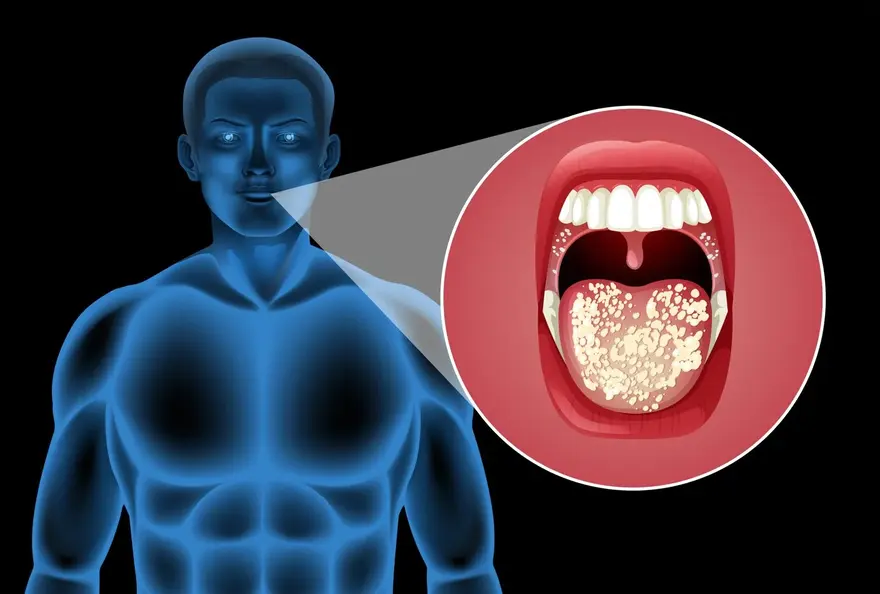Preventive Healthcare
Pompe Disease: Symptoms, Diagnosis, and Treatment of This Rare Genetic Disorder
424 Views
0

What is Pompe disease?
Pompe disease, also known as acid maltase deficiency or glycogen storage disease type II, is a rare inherited disorder characterised by the buildup of glycogen in the body's cells due to a deficiency of the enzyme acid alpha-glucosidase (GAA).
This enzyme is responsible for breaking down glycogen, a complex sugar, within the lysosomes of cells. When GAA is lacking, glycogen accumulates in various tissues and organs, particularly in the muscles, leading to cellular damage and impaired function.
What are the types of Pompe disease?
Researchers have identified three main Pompe disease types, which vary in severity and the age at which symptoms appear: classic infantile-onset, non-classic infantile-onset, and late-onset.
Classic Infantile-Onset
This Pompe disease type manifests within the first few months of life. Infants often exhibit significant Pompe disease symptoms, such as severe muscle weakness, hypotonia, hepatomegaly, and heart defects. Without treatment, this type can lead to death from heart failure within the first year.
Non-Classic Infantile-Onset
This type of Pompe disease generally appears by the age of 1. While it shares some symptoms with the classic form, affected children experience delayed motor skills and progressive muscle weakness, along with potential cardiomegaly. However, they usually do not develop heart failure, and most live into early childhood.
Late-Onset
This Pompe disease type can emerge in childhood, adolescence, or adulthood and tends to be milder than the infantile forms. It primarily causes progressive muscle weakness, particularly in the legs and trunk, and may lead to respiratory issues over time. Understanding these types is crucial for the effective management and treatment of Pompe disease symptoms.
How common is Pompe disease?
Pompe disease is a rare disorder, with an estimated incidence of approximately 1 in 40,000 live births. However, the frequency can vary among different ethnic groups. For example, the incidence is higher in African Americans, with an estimated 1 in 14,000 affected, and in some Asian populations, such as Taiwanese, with an incidence of around 1 in 50,000.
What are the symptoms of Pompe disease?
Pompe disease symptoms vary depending on the type.
- Classic Infantile-Onset Pompe Disease: Symptoms include severe muscle weakness (myopathy), poor muscle tone (hypotonia), enlarged liver (hepatomegaly), and heart defects. Affected infants may also experience failure to thrive and respiratory difficulties, often leading to heart failure and death within the first year if untreated.
- Non-Classic Infantile-Onset Pompe Disease: Symptoms include delayed motor skills, progressive muscle weakness, and potential cardiomegaly. Unlike the classic form, heart failure is less common, but respiratory problems can still arise, often resulting in a shortened lifespan.
- Late-Onset Pompe Disease: Symptoms primarily involve progressive muscle weakness, especially in the legs and trunk, along with breathing difficulties, which can lead to respiratory failure as the condition progresses.
What causes Pompe disease?
Pompe disease causes are rooted in genetics. The condition is caused by mutations in the GAA gene, which provides instructions for producing the acid alpha-glucosidase enzyme. These mutations lead to a deficiency or complete absence of GAA activity, resulting in the accumulation of glycogen within lysosomes.
Pompe disease is an autosomal recessive disorder, meaning that an individual must inherit one copy of the faulty gene from each parent to develop the condition. If both parents are carriers, there is a 25% chance that their child will inherit the disorder.
What are the complications of Pompe disease?
The complications of Pompe disease can be severe and life-threatening, especially in infantile-onset cases. Some of the major complications include:
- Respiratory failure due to weakness of the diaphragm and other respiratory muscles
- Cardiomyopathy and heart failure, particularly in infantile-onset cases
- Feeding difficulties and aspiration pneumonia
- Skeletal abnormalities, such as scoliosis or joint contractures
- Hearing loss
- Developmental delays and intellectual disability in some cases
How is Pompe disease diagnosed?
Diagnosing Pompe disease involves a combination of clinical evaluation, biochemical tests, and genetic analysis. The diagnostic process may include:
- Physical examination and medical history review
- Blood tests to measure the activity of the GAA enzyme
- Genetic testing to identify mutations in the GAA gene
- Muscle biopsy to assess glycogen accumulation and enzyme activity
- Imaging studies, such as echocardiogram or MRI, to evaluate the heart and muscles
- Pulmonary function tests to assess respiratory muscle strength
Newborn screening for Pompe disease is available in some regions, allowing for early diagnosis and intervention.
How is Pompe disease treated?
Pompe disease treatment primarily involves enzyme replacement therapy (ERT) and supportive care. The main treatment options include:
- Enzyme Replacement Therapy (ERT):
- ERT involves intravenous infusion of a recombinant human GAA enzyme, such as alglucosidase alfa (Myozyme or Lumizyme).
- This type of Pompe disease treatment helps break down glycogen and improve muscle function and survival, especially when started early.
- Supportive Care:
- Respiratory support, including ventilators and airway clearance techniques
- Cardiac management, such as medications for heart failure
- Physical therapy and rehabilitation to maintain muscle strength and function
- Nutritional support and management of feeding difficulties
- Regular monitoring and treatment of complications
- Emerging Therapies:
- Gene therapy and other novel approaches are being investigated in clinical trials to potentially provide long-term treatment options.
How to prevent Pompe disease?
As Pompe disease is an inherited genetic disorder, there is no direct way to prevent its occurrence. However, there are steps that can be taken to manage the risk:
- Genetic counselling for families with a history of Pompe disease to understand the inheritance pattern and risk of passing the condition to offspring
- Carrier testing for individuals with a family history of the disorder
- Prenatal diagnosis through chorionic villus sampling (CVS) or amniocentesis for known carrier couples
- Newborn screening to identify affected infants early and initiate prompt treatment
What is the Pompe disease life expectancy?
The life expectancy for individuals with Pompe disease varies depending on the type and severity of the condition, as well as the timing of diagnosis and treatment initiation.
- For infantile-onset cases, the prognosis is generally poor without treatment, with most affected infants not surviving past the first year of life. However, with early diagnosis and initiation of enzyme replacement therapy, the survival rate and quality of life have significantly improved, with some children now surviving into childhood and beyond.
- In late-onset cases, the life expectancy is more variable, depending on the age of onset, rate of progression, and extent of respiratory involvement. With appropriate supportive care and treatment, many individuals with late-onset Pompe disease can have a near-normal life expectancy.
When to see a doctor?
If you or your child experience symptoms suggestive of Pompe disease, it is essential to consult a healthcare provider promptly. Additionally, if you have a family history of Pompe disease or are aware of your carrier status, it is important to seek genetic counselling to understand your risks and options for family planning and prenatal testing.
How do we take care of ourselves or our child with this Pompe disease?
Caring for yourself or a loved one with Pompe disease requires a multidisciplinary approach and close collaboration with a team of healthcare professionals. Some key aspects of management include:
- Adhering to the recommended schedule for enzyme replacement therapy infusions
- Regularly monitoring respiratory function and using appropriate supportive devices, such as ventilators or cough assist machines
- Engaging in physical therapy and rehabilitation to maintain muscle strength and function
- Ensuring adequate nutrition and managing feeding difficulties, which may require special diets or feeding tubes
- Attending regular follow-up appointments with specialists to monitor disease progression and adjust treatment plans as needed
- Seeking support from patient advocacy groups, counselors, or social workers to cope with the emotional and practical challenges of living with a chronic condition
Conclusion
Pompe disease is a rare and complex genetic disorder that requires specialised care and management. If you suspect that you or a loved one may have Pompe disease, do not hesitate to seek medical advice and undergo appropriate testing.
At Metropolis Healthcare, we understand the importance of accurate and timely diagnosis for rare genetic disorders like Pompe disease. Our state-of-the-art diagnostic laboratories and expert pathologists are committed to providing reliable testing services to help individuals and healthcare providers make informed decisions about their health.























 WhatsApp
WhatsApp